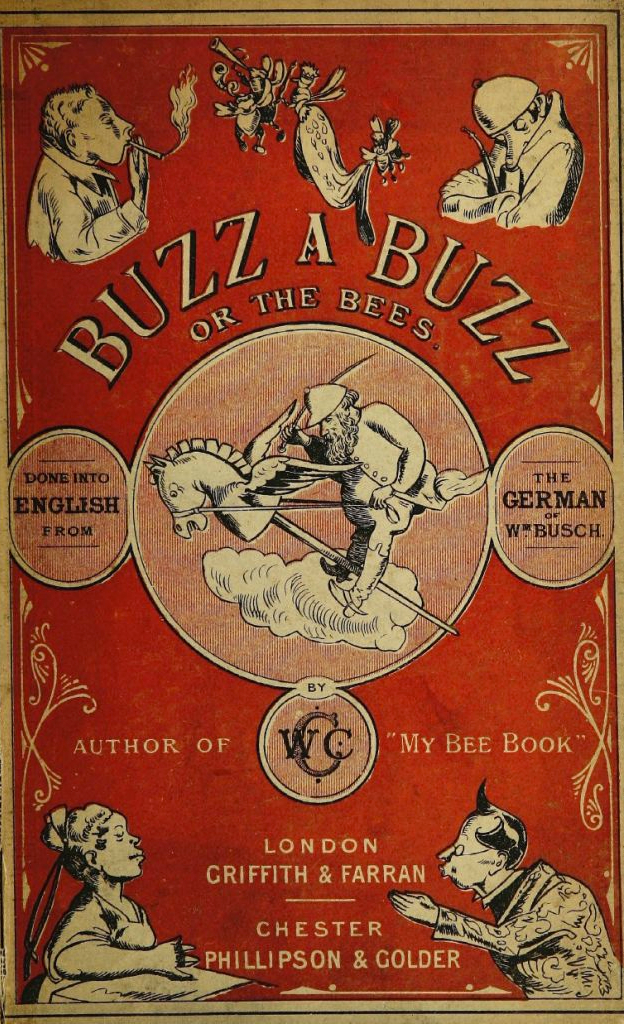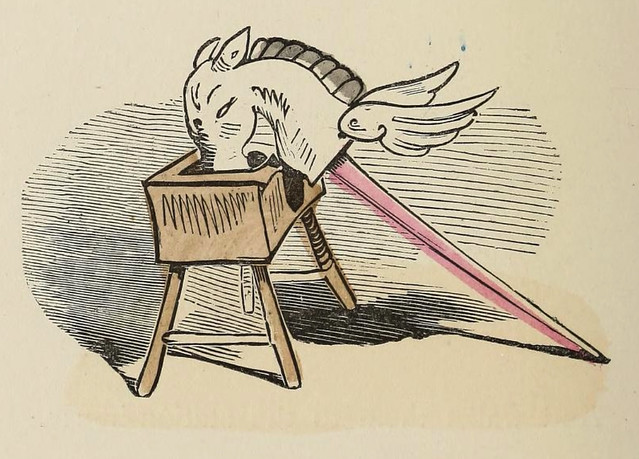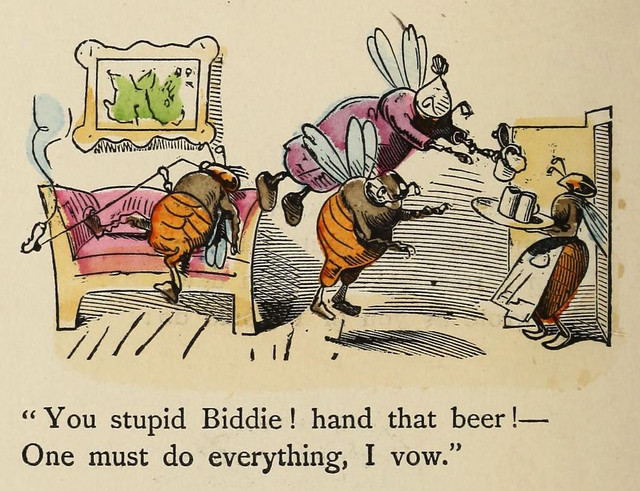
Today is the birthday of German humorist, poet, illustrator and painter Wilhelm Busch. “He published comic illustrated cautionary tales from 1859, achieving his most notable works in the 1870s. Busch’s illustrations used wood engraving, and later, zincography.
Busch drew on contemporary parochial and city life, satirizing Catholicism, Philistinism, strict religious morality and bigotry. His comic text was colourful and entertaining, using onomatopoeia, neologisms and other figures of speech, and led to some work being banned by the authorities.
Busch was influential in both poetry and illustration, and became a source for future generations of comic artists. The Katzenjammer Kids was inspired by Busch’s Max and Moritz, one of a number of imitations produced in Germany and the United States. The Wilhelm Busch Prize and the Wilhelm Busch Museum help maintain his legacy. His 175th anniversary in 2007 was celebrated throughout Germany. Busch remains one of the most influential poets and artists in Western Europe.”
One of his many books was “Buzz A Buzz; or, The Bees,” first published in 1872, as far as I can tell.

Despite many of his works being for children, there is some mention of beer, of course. At the end of the book, Pegasus, who is a hobby horse with wings, gets a reward of a trough filled with beer.
The 1872 edition includes Notes on Buzz-a-Buzz at the end, and give some additional insight into the beer.
“And order Pegasus—HIS BEER.”— Page 72.
Baierische Bier is infinitely superior to any Hippocrene. But no drink in the world can hold a candle to genuine “Wienische Bier,” as it comes cool drawn from the cellar. The Romans knew not beer, and so had to put up with “Falernian,” or even the “vile Cœcubum.” I say put up, for the wine that now goes by the name of Falernian is detestable. I suppose, however, that two thousand years ago it was far more carefully made, as I trust it may again be in “Italia Unita.” The Romans, knew not beer, but the Greeks had tasted it, though brewed by the hands of barbarians. In Xenophon’s Retreat of the Ten Thousand we are told that they came upon a race of people from whom they got
Ἐκ κριθῶν μέθυ. Let us then leave Pegasus to enjoy his drink of barley wine, though like Baron Munchausen’s famous steed, he hath not the wherewithal to stow away his beer. My dear old Peggy, alluded to in the first of this series of notes, and therefore the fittest subject for a wind up, was, when hard worked, very fond of a quart of good ale, with half a quartern loaf broken into it; she would drink up the ale at a draught, then quickly munch the sop, and start with fresh vigour for another ten-mile trot.
And this colored illustration is from an 1873 edition.
In that edition, Busch also mentions beer in Chapter 1:




An interesting article. I did not know hobby horses needed beer. No wonder mine is so sluggish.